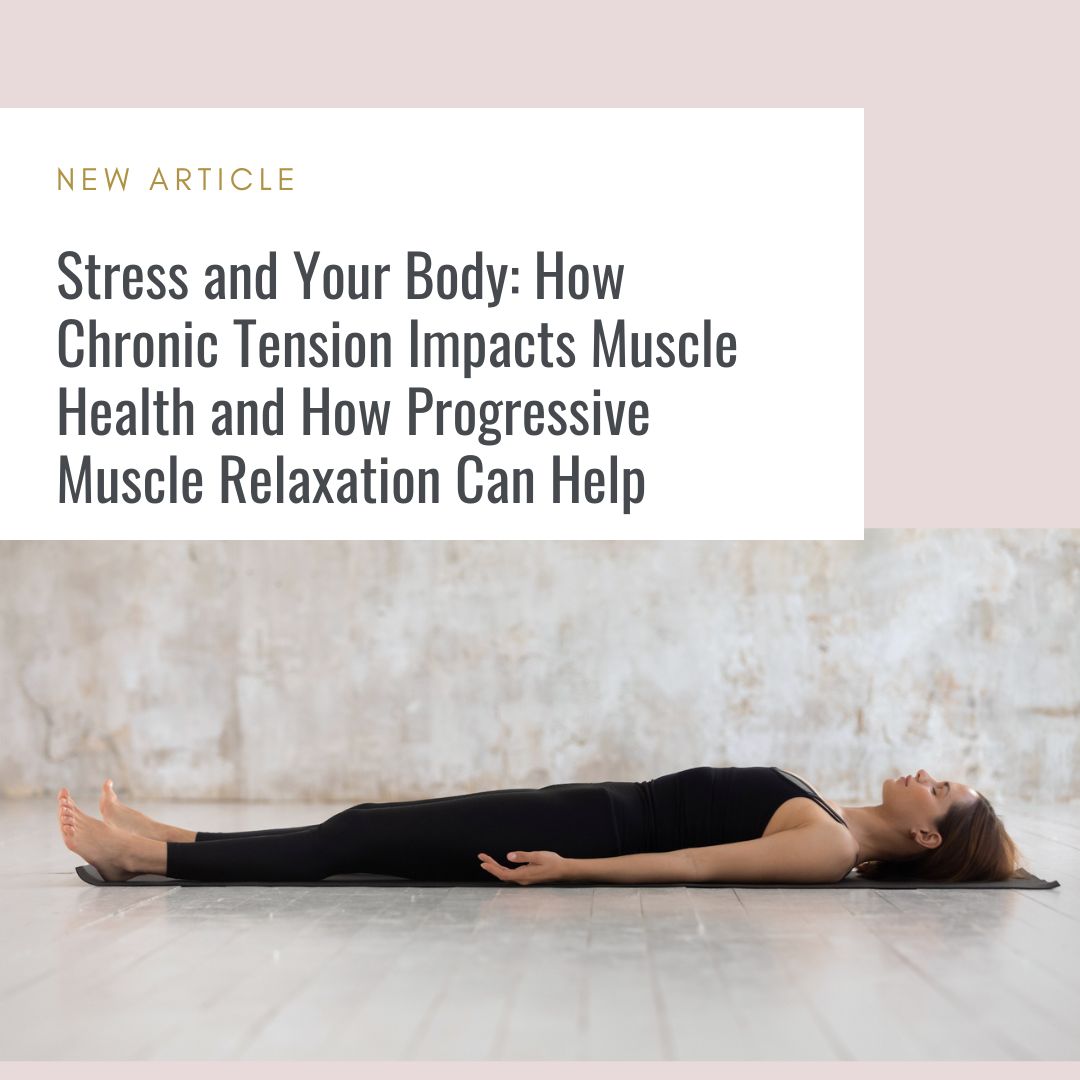In today’s fast-paced world, stress impacts both mental and physical health. It causes muscles to tighten and reflexes to remain on high alert, leading to chronic tension and various health issues.
– Muscle Imbalances: Stress often leads to overactive muscles in some areas while others become weak. For instance, stress can make your neck and shoulders tight while weakening other muscle groups.
– Tissue Damage: Ongoing stress can damage muscle tissues, limiting their flexibility and strength.
– Breathing Problems: Stress can lead to shallow breathing, which exacerbates muscle tension and discomfort.
Stress and Muscle Health
The Importance of Stress Management for Muscle Health
Effective stress management is key for maintaining muscle health.
Here’s how:
1. Retrain Your Body: Use techniques like mindfulness, meditation, and progressive muscle relaxation (PMR) to reduce tension and promote relaxation.
2. Focus on Breathing: Practice deep, controlled breathing to lower stress and aid muscle relaxation and recovery.
3. Address Muscle Imbalances: Use therapies such as neuromuscular massage to correct muscle imbalances caused by stress.
4. Adopt Holistic Care: Combine stress management with physical care for overall health.
The Link Between Physical Alignment and Emotional Regulation
Proper body alignment reduces stress and supports emotional regulation. Here’s how:
– Alignment and Stress: Correct body alignment helps reduce musculoskeletal stress and pain, leading to lower overall stress levels.
– Mind-Body Connection: Good posture can enhance mood and energy levels, as research shows that physical posture influences emotional states.
– Autonomic Nervous System: Proper alignment helps balance the autonomic nervous system (ANS), which improves emotional regulation and reduces stress reactivity.
– Somatic Practices: Techniques like yoga and Tai Chi, which emphasize alignment, have been shown to reduce stress and improve emotional well-being.
Progressive Muscle Relaxation (PMR): A Tool for Stress Reduction
It helps increase body awareness and alleviate muscle tension.
How PMR Works
1. Preparation: Find a quiet, comfortable space. Sit or lie down, close your eyes, and take deep breaths.
2. Tensing and Relaxing: Focus on one muscle group at a time, starting from your toes and moving up to your head. Tense each group for 5-10 seconds, then release and notice the relaxation.
3. Complete the Routine: Continue this process for all major muscle groups.
Benefits of PMR
– Reduces Stress and Anxiety: Lowers stress levels and helps manage anxiety.
– Improves Sleep: Enhances relaxation before bed, improving sleep quality.
– Enhances Body Awareness: Helps manage physical tension more effectively.
– Relieves Muscle Tension: Alleviates chronic muscle tension and related pain.
PMR Routine Example
1. Toes: “Curl your toes. Hold… and release.”
2. Feet: “Flex your feet upward. Hold… and release.”
3. Calves: “Tense your calves. Hold… and release.”
4. Thighs: “Tighten your thighs. Hold… and release.”
5. Abdomen*: “Suck in your stomach. Hold… and release.”
6. Chest: “Take a deep breath. Hold… and release.”
7. Hands: “Clench your fists. Hold… and release.”
8. Arms: “Tense your biceps. Hold… and release.”
9. Shoulders: “Shrug your shoulders. Hold… and release.”
10. Neck: “Gently tilt your head back. Hold… and release.”
11. Face: “Scrunch your face. Hold… and release.”
PMR is a powerful tool for managing stress and improving muscle health. Regular practice can help you feel more relaxed and better equipped to handle daily challenges.
Understanding the impact of psychological stress on muscle health and incorporating effective stress management techniques can lead to a healthier, more balanced life.

